Phalgun Shukla 4, Kaliyug Varsha 5113
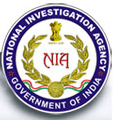
The officials of National Investigation Agency (Hindu Oppressing Agency) have been unjustly torturing Sanatan seekers for the last several days. You have been reading about this in the news from last few days. Sanatan seekers are subjected to this torment today, tomorrow other devoted Hindu and later every innocent human will be subject of this torment; this is because times are bad. In order to face this torment we are trying to understand some information through this article.
A. The National Investigation Agency was established in 2008 after the terrorist attacks on Mumbai, to investigate such terrorist acts and to prevent such terrorist activities. This agency was established under the ‘National Investigation Act’ law which was approved by the Parliament. Hence no official has the authority to supersede the provisions of this law.
B.This law also provides a list of criminal activities which the National Investigation Agency can investigate. The Agency can investigate the following criminal activities
B1. ‘Atomic Energy Act 1962’
B2. ‘Unlawful Activities Provision Act 1967’
B3. ‘Anti-hijacking Act 1982’
B4. ‘Suppression of Unlawful Acts against Safety of Civil Aviation Act 1982’ (Law relating to civil aircraft traffic)
B5. ‘The SAARC Convention’ (‘Suppression of Terrorism Act 1993’)
B6. ‘Suppression of Unlawful Acts against Safety of Maritime Navigation and Fixed Platforms for Continental Shelf Act 2002’
B7. ‘The Weapons of Mass Destruction and their Delivery Systems (preventing unlawful activities) Act 2005’
B8. Clauses 121 to 130 of Section 6 and 489-A to 489-E of Indian Penal Code (Calling war against the nation or action against friendly nations or printing and distribution of dummy currency notes)
C. Additional rights of the National Investigation Agency
Under the provisions of the Indian Penal Code no police officials has the permission to carry out independent investigations beyond the boundaries of his jurisdiction. Official from a police station at Kolhapur cannot investigate or arrest an accused from Solapur. He can do this only with the cooperation of the Solapur police. But the officials of the National Investigation Agency have been given the right under law of being the Chief Authority of the Police station of the place they are currently present. Hence they can investigate anyone or even arrest anyone.
D.Restrictions on the National Investigation Agency by law
D1. To call a person for enquiry they have to issue a written notice under Section 160 to him before calling him.
D2. Enquiries about women or children aged below 15 years should be done in their houses and not in the police station.
D3. Enquiry about women should be done by female authorities only. Medical checking of women should be done by a female medical authority by law.
D4. While arresting a person, the NIA officials must inform him that he has the right to inform one person about his arrest and give information of the same.
D5. It is mandatory under the law that the police ‘diary’ must contain the name of the person being arrested, the name of the person who has been informed about the arrest, the name of the police official whose custody the arrested person is.
D6. A memorandum of the arrest must be prepared and one witness must be present : When an accused is arrested he can demand for a medical check-up. The ‘Panchnama’ prepared after the check-up must contain the signatures of the accused as well as the police official.
D7. After arrest he must be produced before the local court before taking him into police custody.
D8. Giving permission to the lawyer of the accused to be present during investigations
If a person has been arrested by the National Investigation Agency under the Unlawful Activities Prevention Act 1967, then he can be booked under stricter provisions of the law. The law is applicable to activities such as a bomb blast or causing social disturbance by instigating trouble between two communities. Arrest under this law results in police custody of 30 days (usually it is 15 days), if the police do not file a case within 60 days of the arrest, usually one can get bail but in this case the period is of 90 days. Criminal cases can be registered under any crime falling within the provisions of this law. Hence officials can personally investigate and arrest people under otherwise seemingly simple crimes. Of course Sanatan Seekers have no absolutely no relation to the Madgaon blasts. Hence they cannot do anything other than investigating.
The following information can be told to the officials of the National Investigation thereby informing them about how they are misusing their rights to create a suppressive regime : http://www.sanglipolice.org/sanglipolice_html_files/rights_of_arrested_person.htm
In what manner will the National Investigation Agency conduct investigation of seekers?
The National Investigation Agency can go to Sanatan Seekers only for the following reasons
1.To investigate in relation to the Madgaon bomb blasts. (This matter is being investigated by the National Investigation Agency. Investigations on other bomb blasts are also with them; but there is suspicion about Jihadi organizations conducting these blasts. Hence the possibility of investigations of seekers/supporters appears minimal.)
2.Under Clauses 153-A or 153-B of the Indian Penal Code (Creating or attempting to create rift between two communities, religions or sects) if any criminal activity has taken place and a report on the same has been sent by the State government to the Central government and then the Central government has sent it to the National Investigation Agency giving orders to investigate the same.
Other than these reasons, if officials of the National Investigation approach us for enquiry, we are not bound to give any information before understanding the rights of the officials. We can ask the officials their intent in a very humble manner.
Source : Daily Sanatan Prabhat

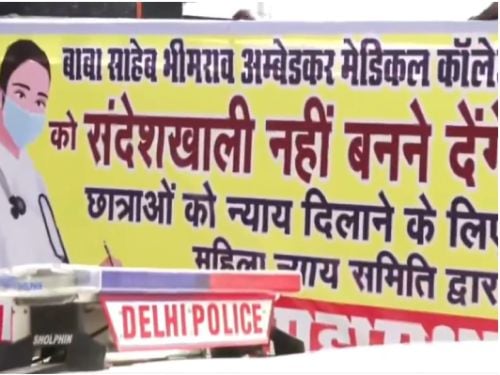 Delhi: Female students complain of sexual harassment by Professor Salim Sheikh
Delhi: Female students complain of sexual harassment by Professor Salim Sheikh Global Spirituality Mahotsav organised in Hyderabad from 14th to 17th of March
Global Spirituality Mahotsav organised in Hyderabad from 14th to 17th of March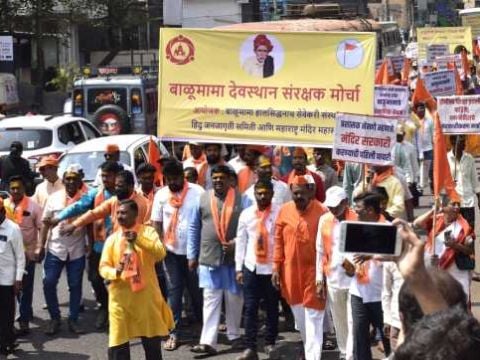 Conduct an immediate inquiry into mismanagement of ‘Balumama Devasthan’ at Kolhapur
Conduct an immediate inquiry into mismanagement of ‘Balumama Devasthan’ at Kolhapur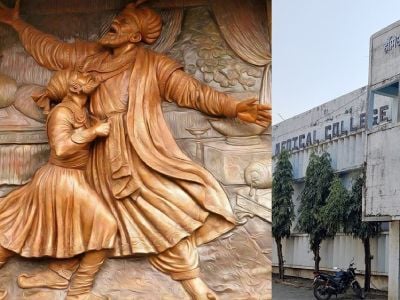 College students perform Afzal Khan’s killing in annual program, Muslims demand apology
College students perform Afzal Khan’s killing in annual program, Muslims demand apology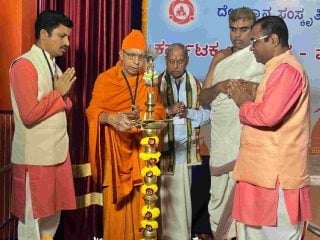 United resistence is necessary to protect temples! – Priest Shri Harinarayana Asranna
United resistence is necessary to protect temples! – Priest Shri Harinarayana Asranna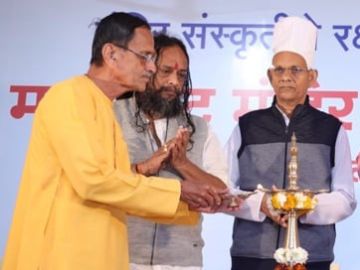 Amravati: Maharashtra Mandir Nyas Adhiveshan to protect and promote temple culture
Amravati: Maharashtra Mandir Nyas Adhiveshan to protect and promote temple culture